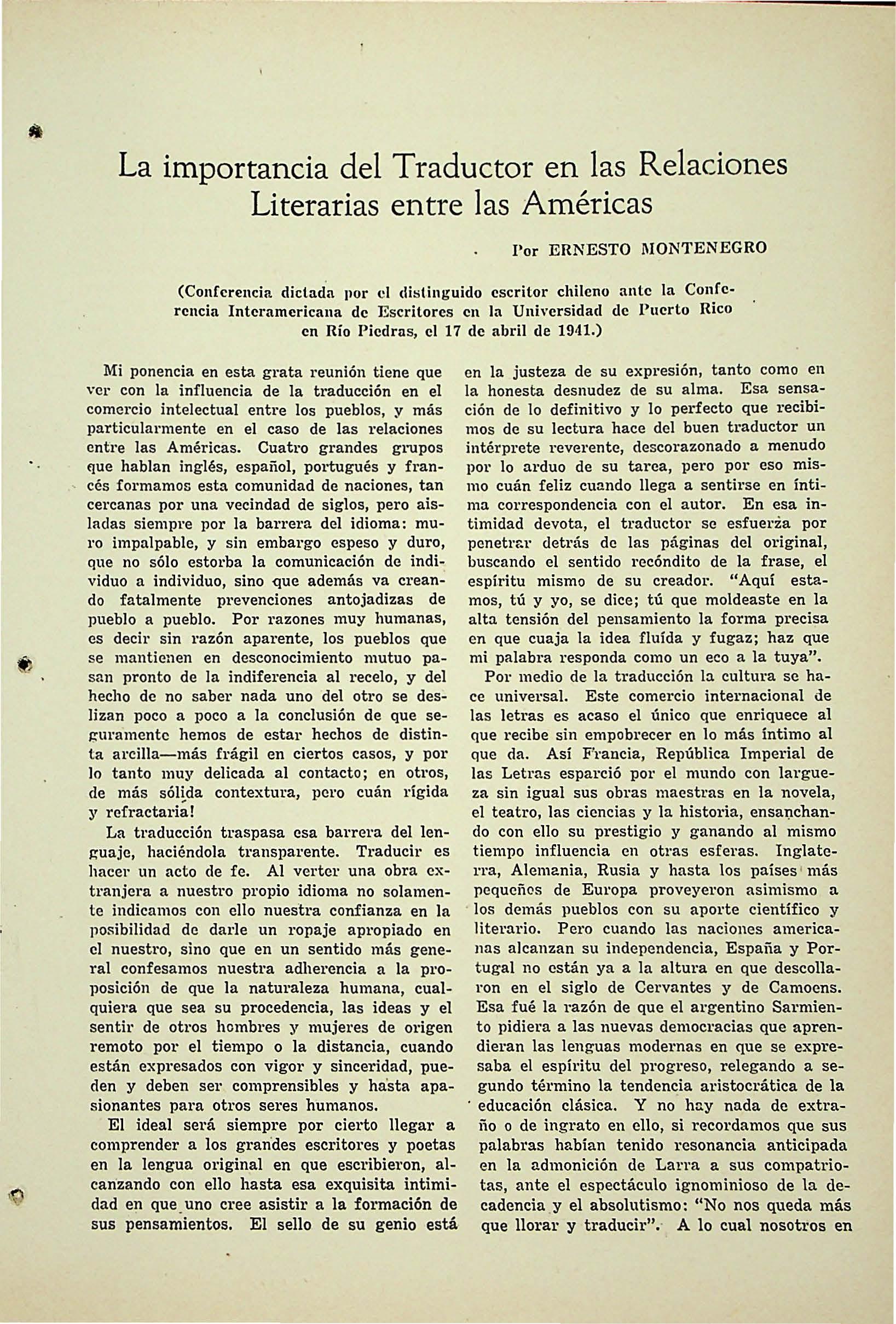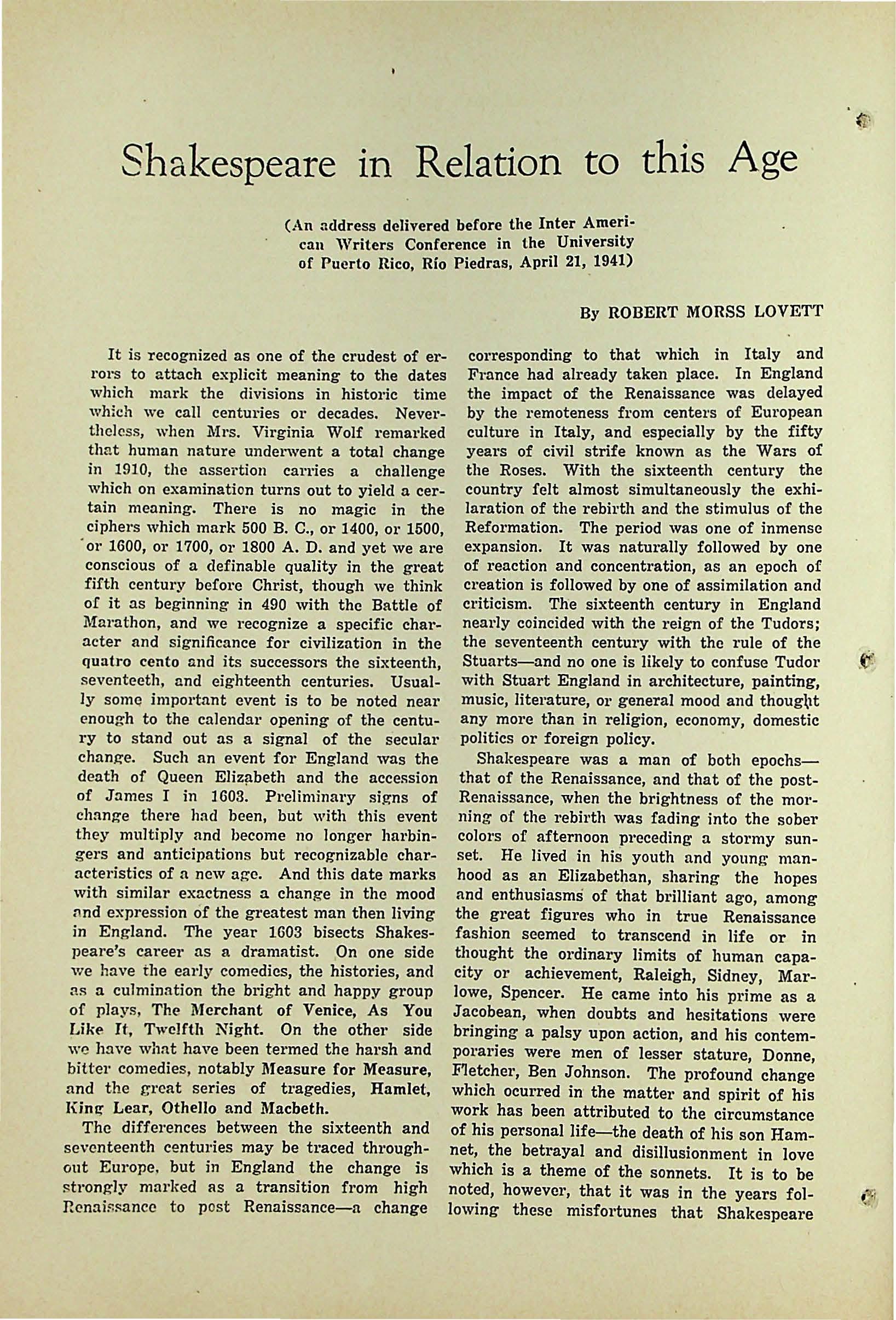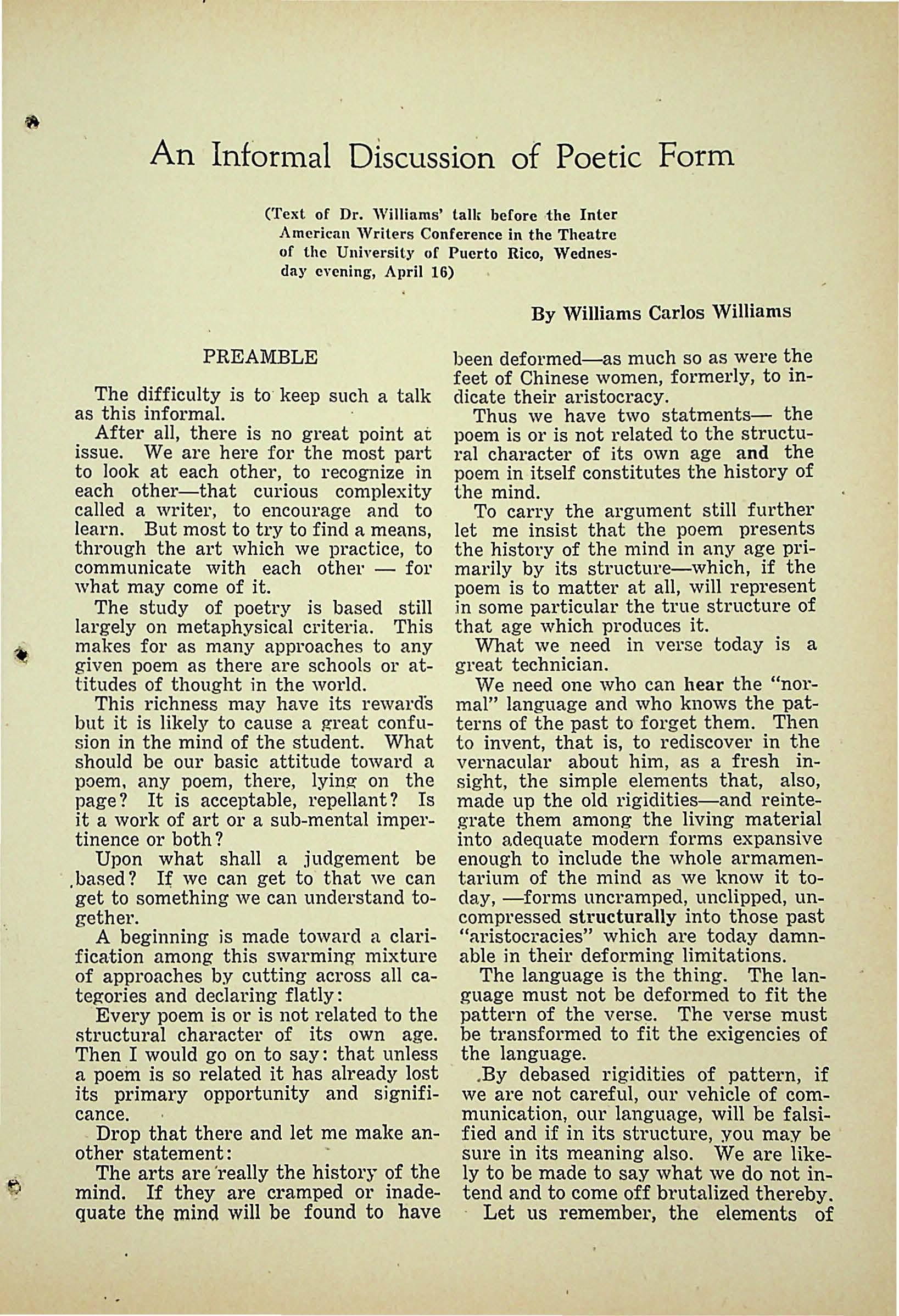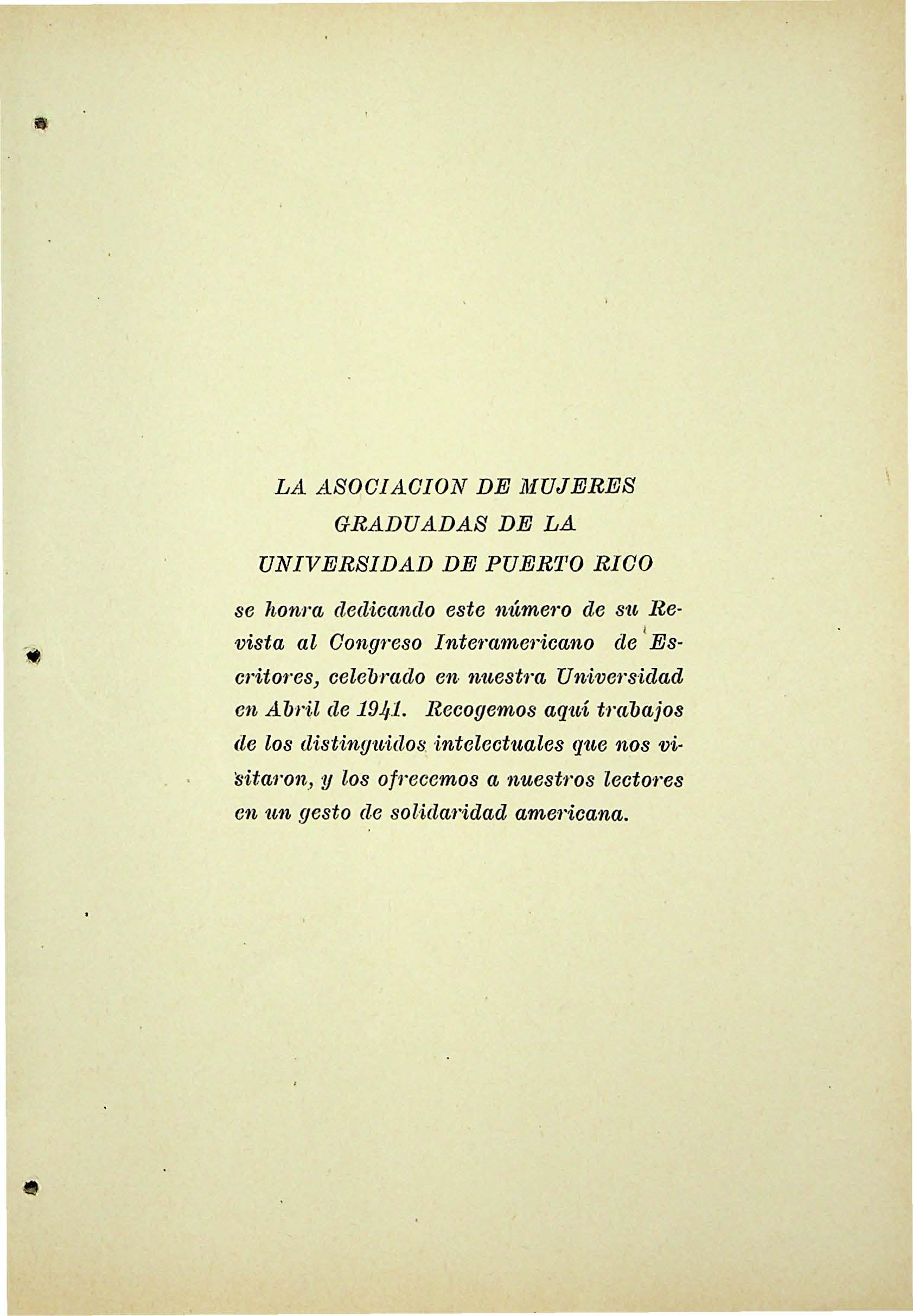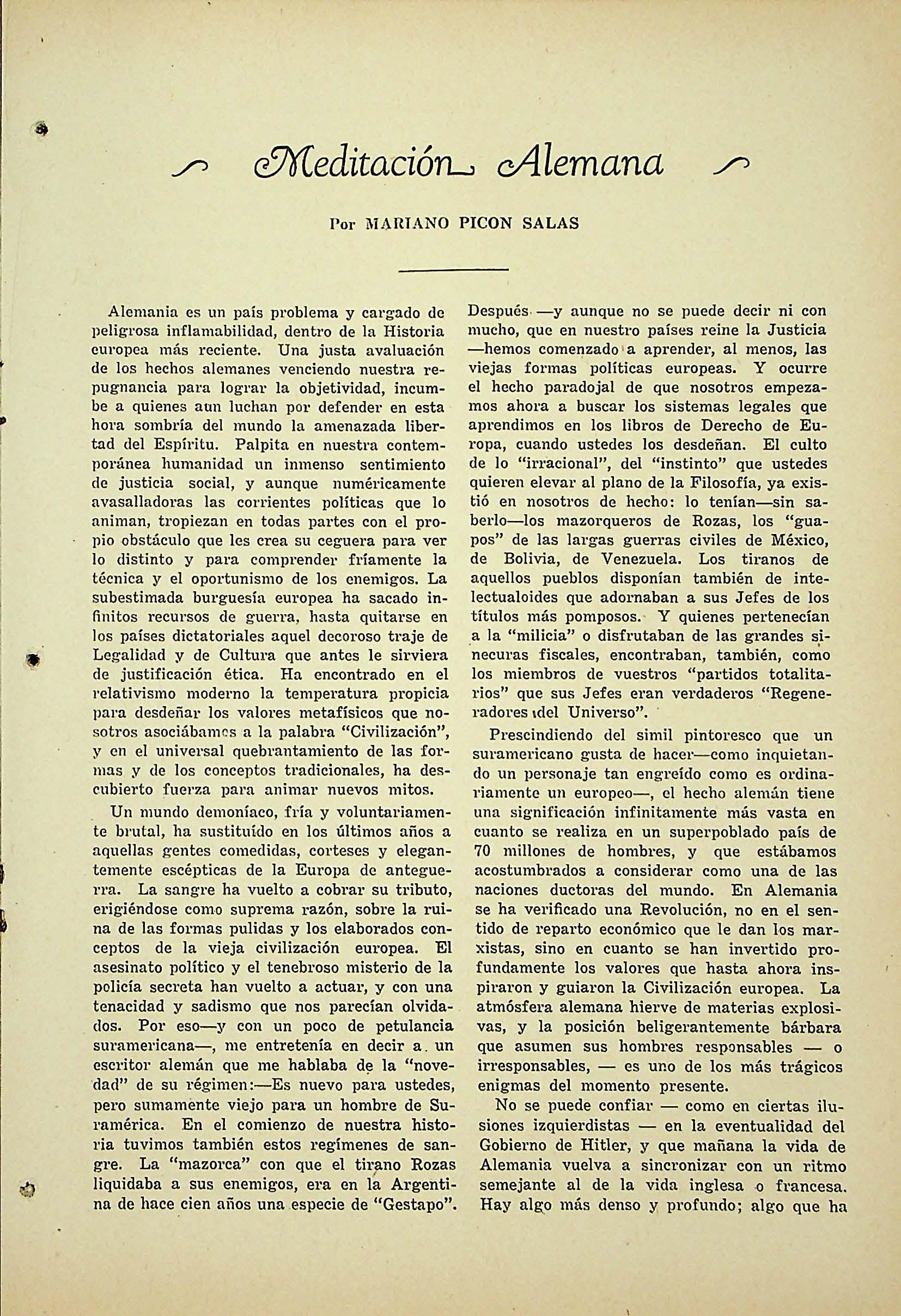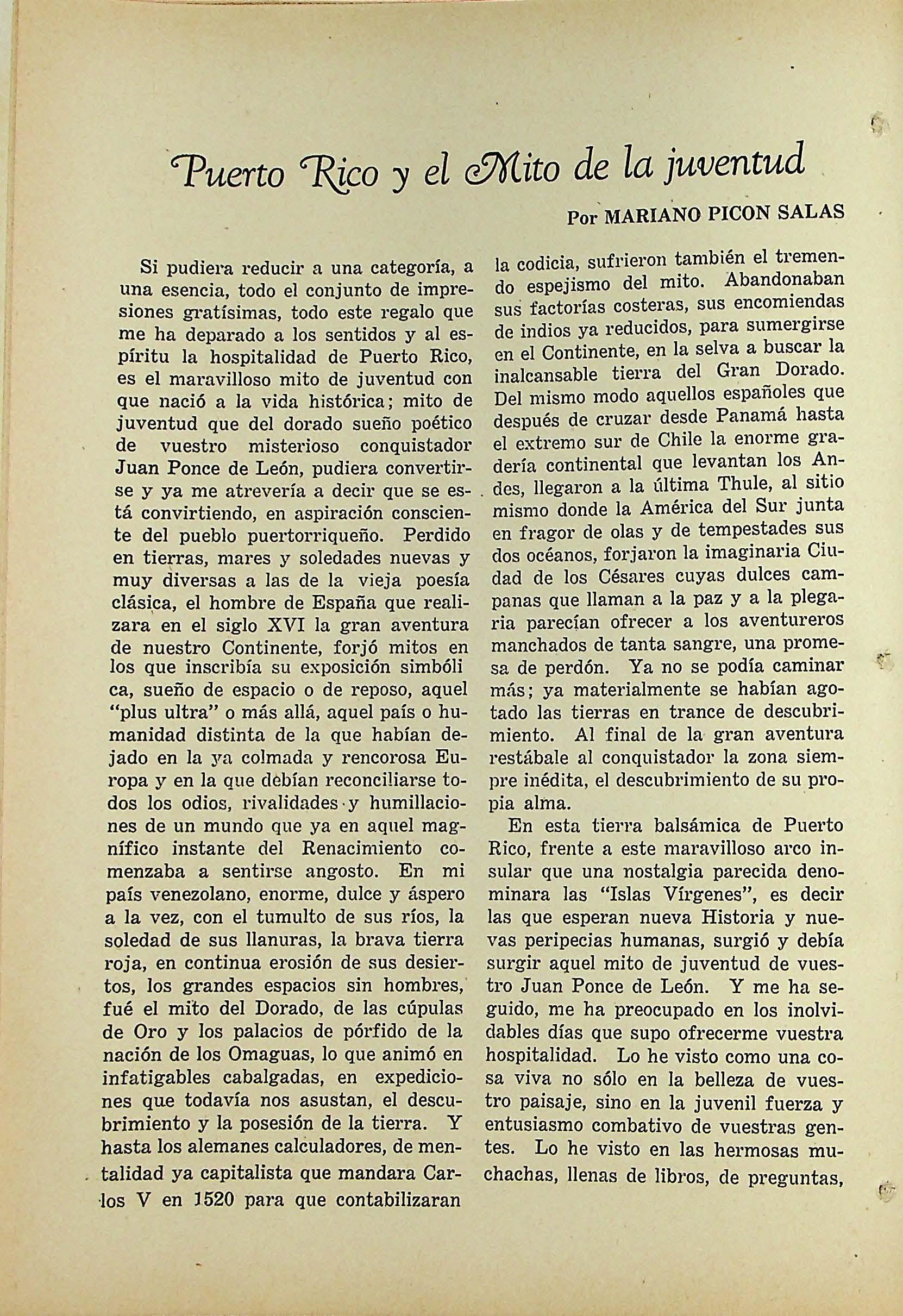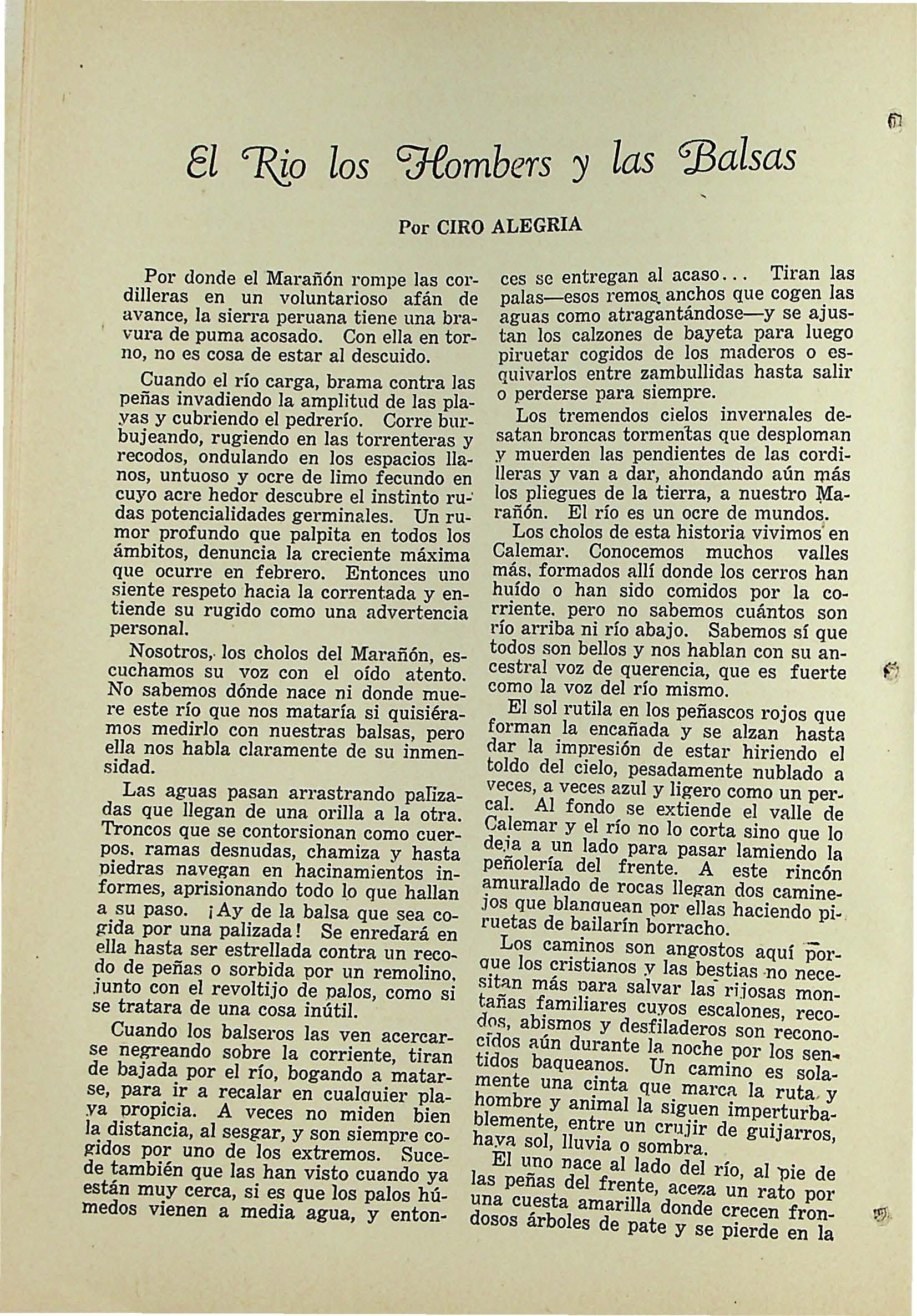HOW TO WRITE A BIOGRAPHY By l\10RRIS BISHOP
(Addrcss dclh·crcd bcforc tite First InterArncric:m Writcrs' Conferencc, University of Puerto Rico, April ,21, 1941). Sincc t his is a ~onfercnce on creative writing, I must make an . initial assumption. You are, or want to be, creative writers. You havc written a book, you are writing a book, you want to write a book. To this assumpt ion some of you may make a feeble protest. You murmur: "But why should I write a book?" Well, why not join the great majority ? You don't want to be queer, do you? The question that then presents itself is: what kind of a book? Hcre you must con~ult your own spirit. If, like so many Puertorriqueños, ~·ou wish to capture a moment of beauty in t.he most beautifu¡ words that you can find , if you long to record emotion rather than fact, you will write poetry. If it is your mental habit to tell yourself long stories about people; if, in imagination, you see yc;iur acquaintances transforming themselves and lending strange lives in your own mínd, you "'ill write fiction. But if thc fact interests ~·ou more than fancy, if the best imaginations of the novelist seem dull beside the fantastic performances of truth, you will do well to choose biography. For the inventions of the fic.tionist are peor things in comparison with the facts of time and space, which I would venture to call the imaginations of God. Good. You will write a biography. But what kind of a biography? Perhaps an autobiogTaphy. There ~s at pre• sent a considerable vogue for the autobiography of adventurers, Iiterary physicians, farranging newspaper correspondents, and so on. The trouble is that to write an autobiography you must record a tich, full , and interesting life. So you must set about Ieading a rich, full, and interesting lifc. Perhaps it is hardly worth the trouble. If you spend thirty or forty years leading such a rich and exhausting Iife, and if, then, your autobiography does not sell, where are you? You might as well have taken it easy. Perhaps, again, yóu dete1·mine to write a sound scholarly biography. For such a ·deter-
mination I honor ánd rcspect you. Your purpose will be to add to the world's store of incontrovertible fact. Your watchword will be : the truth at any cost, and nothing but the truth. Your method will be that of the scholar: the cautious, circumspect testing of authorities, the application of the rules of evidence, at whatever cost to your book as a work of art. You will argue each problem as you go along, supporting your views with footnotes, exact references to authorities, appendices and piéces justificatives. And when it is done, you, or some learned group, will pay to get it publ.ished. It will sell about 300 copies, mostly to college libraries. It will be reviewed in certain learned publicatious, with perhaps a notice in tite New York Times under "Other Books of Special Interest". You will have your reward in the esteem of tite few. Not even your best friends, uot even your own family, will rend tite book. They won't even buy it. It is a curious fact that your frieuds will do anything in the world for you. Thcy will spend their time and money for you; they will nurse you; they will suffer for you. But they won't buy your books. There is a third sort of biog raphy, one which appeals to the scholarly writer who is, pcrhaps, more wdter titan scholai-. It is a kind of biography which has had many manifestations in recent years, beginning, perhaps, with Maurois' Ariel in 1923. It has many of the characteristics of fiction, including that of general popularity. Ev'ery reader knows it well, though the English Departments of our co!leges regard it as a bastard form, when, indeed, they admit its existence nt all. Let us call it Biofiction, on the analogy with biophysics, biochemistry, biophysiography. It may be more bio than fiction or more fiction than bio. But in any case it is based solidly on fact, and it permits a good deal of invention, · a good deal of decoration which must not distort the essentiál form.
,,

